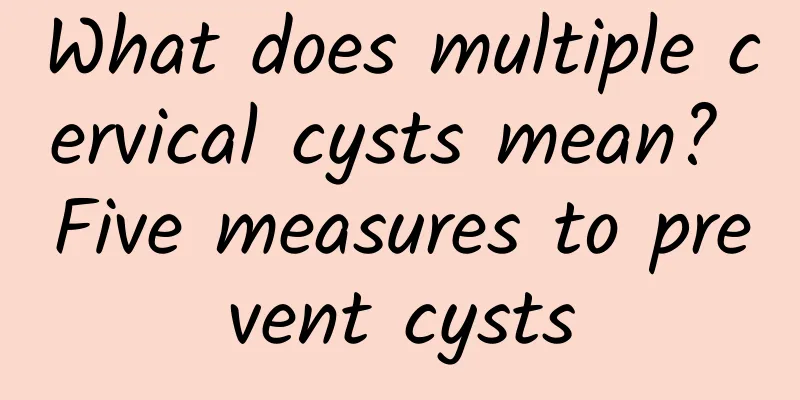What is a uterine cyst?

|
What is a uterine cyst? In simple terms, a uterine cyst is a common gynecological problem, usually a fluid-filled cystic structure formed in or on the surface of the uterus. It may sound a bit scary, but in most cases, uterine cysts are benign and do not pose a serious threat to health. Many women may not be aware of its existence in their daily lives because they usually have no obvious symptoms. Next, let's take a closer look at uterine cysts. Uterine cysts can be divided into several types, the most common of which are uterine fibroids and endometrial cysts. Uterine fibroids are benign tumors composed of smooth muscle cells and fibrous connective tissue, while endometrial cysts are cysts formed due to endometriosis to the myometrium or other parts of the uterus. Although these cysts are usually harmless, in some cases they may cause pain, irregular bleeding, or other uncomfortable symptoms. So, how do you tell if you have a uterine cyst? Generally speaking, the diagnosis of a uterine cyst needs to be confirmed by an ultrasound. If you are told that you have a cyst during a routine physical examination, don't worry too much. The doctor will determine whether further examination or treatment is needed based on the size, location and type of the cyst. In most cases, the doctor may recommend regular observation to ensure that the cyst does not grow larger or cause other problems. For those uterine cysts that may require treatment, treatment options usually include medication and surgery. Medication can help relieve symptoms and reduce the size of the cyst, while surgery is reserved for larger cysts or those with severe symptoms. The specific treatment plan will depend on your individual medical condition and the characteristics of your cyst. Although uterine cysts may sound scary, they do not cause serious health problems in most cases. Maintaining good living habits and having regular gynecological examinations are effective ways to maintain uterine health. If you have any concerns about your health, it is best to consult a doctor in time. Through scientific examinations and treatments, we can better understand and manage our bodies. I hope this article can provide you with some useful information so that you can have a clearer understanding of uterine cysts. |
<<: Does having squamous cells matter?
>>: What is the reason for the pain when having sex?
Recommend
Is it effective to prevent vaginitis by eating cranberries and probiotics? Doctors reveal: How to improve vaginal immunity
The weather is hot and humid in the morning, and ...
Why does cervicitis occur at the age of 21?
Why does cervicitis occur at the age of 21? Cervi...
Is Bingpengsan feasible for treating cervical erosion?
Patients with mild cervical erosion generally do ...
How to drain pelvic fluid
Pelvic effusion is a common gynecological problem...
People should pay attention to the common symptoms of multiple uterine fibroids
Multiple uterine fibroids are a type of gynecolog...
Correct prevention methods for chronic cervicitis
The treatment of chronic cervicitis is a long pro...
Bad hygiene habits may be the main cause of vulvar leukoplakia
The cause of vulvar leukoplakia is still very com...
What is the fastest way to treat dysmenorrhea
Dysmenorrhea is a problem that many female friend...
What causes abnormal vaginal discharge? How to treat it?
What causes abnormal vaginal discharge? How to tr...
The cause of ectopic pregnancy can cause the patient's fallopian tube to shift or deform
The fertilized egg migrates and finally implants ...
Active treatment of acute adnexitis can prevent chronic adnexitis
After suffering from acute adnexitis, female frie...
What are the treatments for adnexitis?
Adnexitis is a common gynecological disease in wo...
Why do women have irregular menstruation after induced abortion?
There are many complications after induced aborti...
Does anyone know the symptoms of chronic cervicitis?
With the improvement of the quality of life, many...
How to regulate irregular menstruation during lactation? What drugs can treat irregular menstruation?
Generally speaking, new mothers will have menstru...









